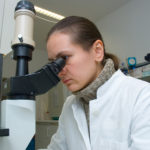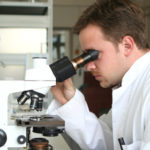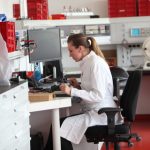
A new way to kill cancer cells
Researchers from the University of Liverpool have identified a new way to kill certain cancer cells by starving them of a key nutrient (University of Liverpool, 2017). The finding could lead the way to more personalised treatment of certain cancers. In a paper published in Cell Reports, scientists including Ioannis Poursaitidis and Xiaomeng Wang from … Continue reading A new way to kill cancer cells

New approach to treat advanced prostate cancer
Researchers from the University of Liverpool and the Sichuan Antibiotics Industrial Institute have discovered a novel treatment for advanced prostate cancer which raises concerns about the way treatment is currently conducted (University of Liverpool, 2017). Professor Youqiang Ke, from the University of Liverpool’s Institute of Translational Medicine, led the research, published in Oncotarget, which focused … Continue reading New approach to treat advanced prostate cancer

New approach to reducing diabetes risk
An international clinical trial conducted by the University of Liverpool has shown that the drug liraglutide 3.0 mg may reduce diabetes risk by 80% in individuals with obesity and pre-diabetes according to a study published in The Lancet (University of Liverpool, 2017). The three year SCALE obesity and pre-diabetes trial followed 2,254 adults with pre-diabetes … Continue reading New approach to reducing diabetes risk

Parasitic genome sequenced in the battle to save honey bees
The genome of a parasitic mite that infects honey bee colonies and causes wide-spread destruction has been sequenced by scientists at the University of Liverpool and Xi’an Jiaotong-Liverpool University (University of Liverpool, 2017). Although there are many potential causes for the decline in honey bee colonies, pathogens and parasites of the honey bee, particularly mites, … Continue reading Parasitic genome sequenced in the battle to save honey bees

Research undertaken to discover genetic cause of epilepsy
The University of Liverpool has received a £390,000 grant from the MRC to conduct research into how mutations in genes can cause epilepsy (University of Liverpool, 2017) . Epilepsy is estimated to affect more than 500,000 people in the UK. This means that around one in every hundred people has the condition. Cells in the … Continue reading Research undertaken to discover genetic cause of epilepsy

New nano approach could cut dose of leading HIV treatment in half
Successful results of a trial led by the University of Liverpool which utilised nanotechnology to improve drug therapies for HIV patients has been presented at the Conference on Retroviruses and Opportunistic Infections (CROI) in Seattle, a leading annual conference of HIV research, clinical practice and progress (University of Liverpool, 2017). The healthy volunteer trial, conducted … Continue reading New nano approach could cut dose of leading HIV treatment in half

Further funding for bedside sepsis test
University of Liverpool spin-out Sepsis Limited has secured further funding support to test a point of care diagnostic tool for the early detection of sepsis (University of Liverpool, 2017). SBRI Healthcare has awarded Sepsis Limited £100,000 for the first phase of testing a working prototype of a hand held device that will be used at … Continue reading Further funding for bedside sepsis test

More cases of norovirus in the UK than previously estimated
Researchers have found that the annual number of estimated number of norovirus cases annually in the UK is approximately 800,000 greater than previously estimated (University of Liverpool, 2017). Norovirus is the most common cause of gastrointestinal disease for all age groups worldwide. The majority of cases experience a mild, self-limiting illness and few people tend … Continue reading More cases of norovirus in the UK than previously estimated

University of Liverpool head and neck cancer research gets £200k boost
A research project, based out of the University of Liverpool, which will bring together a multidisciplinary team of cancer surgeons, medical oncologists and scientists in Liverpool, has been given the go ahead thanks to £200,000 of grant funding (University of Liverpool, 2017). North West Cancer Research (NWCR) has awarded funding for a three year long … Continue reading University of Liverpool head and neck cancer research gets £200k boost

University of Liverpool to coordinate £14m drug safety research project
The University of Liverpool is to co-ordinate a new £14m European research project which aims to improve the understanding of adverse drug reactions by using cutting-edge modelling approaches to drug safety (University of Liverpool, 2017). Adverse drug reactions (ADRs) are the unwanted side effects of medication. They can contribute significantly to patient morbidity, mortality and … Continue reading University of Liverpool to coordinate £14m drug safety research project








